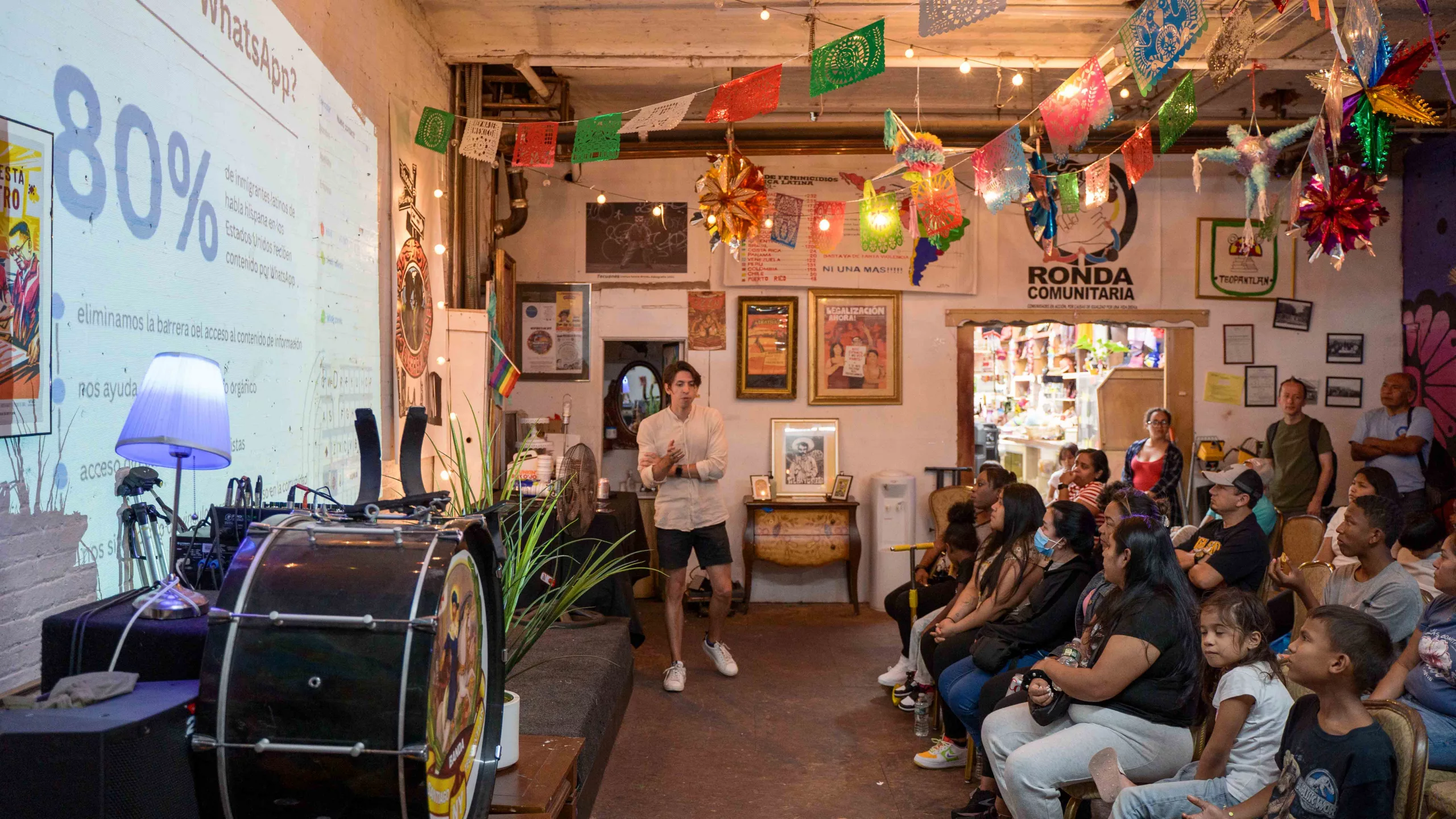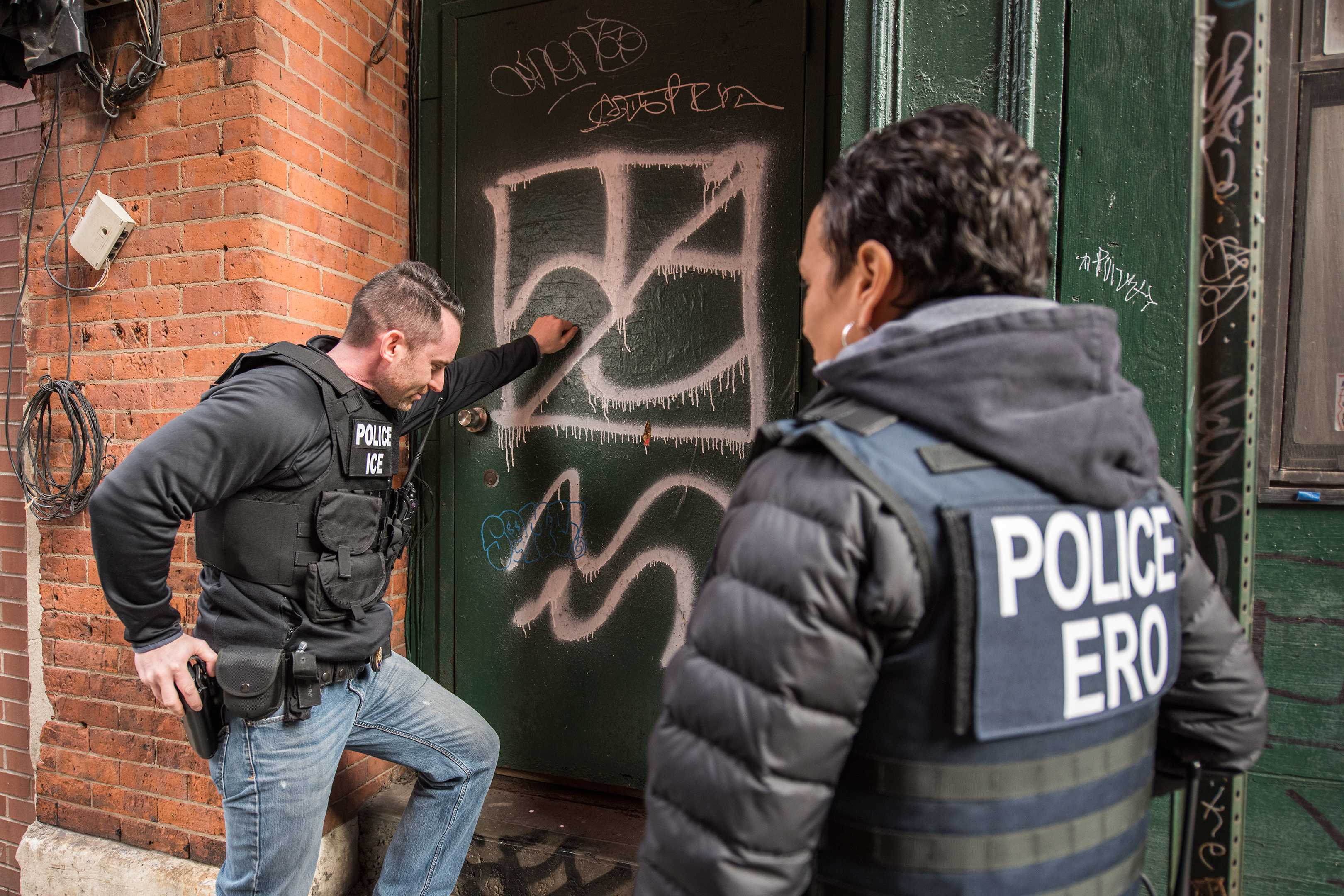Since the launch of Documented’s WhatsApp channel in 2019, more than 6,000 Spanish-speaking immigrant New Yorkers have joined and interacted with our journalists through the platform. They have sent us 54,000 messages asking questions about local services, immigration topics, access to our resources guides, and tipped us on original reporting and investigations. Using their comments we have created more than 50 informational guides and explainers in English and Spanish.
After dedicating the past four years to engaging with members of our community through the platform, we set to host our inaugural in-person event. Our objective was to establish a personal connection with the audience we had been diligently interacting with through WhatsApp, all while seeking candid insights into what has been effective and what we could improve on as journalists. More importantly, however, we also wanted to know what needs to be covered.
38 community members joined us for the evening. Some of them have been in the United States for more than 30 years, whereas others just arrived during the summer. Remarkably, 95% of those in attendance had become subscribers to Documented Semanal, our weekly newsletter disseminated through the WhatsApp platform, within the past year.
Here is what we learned from the discussion.
Romanticizing migration
We asked the attendees what was something they would like to have known when they first arrived in the United States.
All of the responses we heard had some commonalities: there was a need to know the difficulties newly arrived migrants face when it came to the process of employment. Respondents also shared that there was a romanticization of migration that over-promised the assistance migrants would and could receive from local municipalities.
Also Read: Latin American Migrants Use TikTok to Share Their Journeys to the U.S. Border
Jenny Rodriguez, an asylum seeker from Colombia, has been residing in New York for six months. She expressed a desire to have been more informed about the challenges that mothers face when seeking employment.
“Regardless of where we live, whether it’s in a shelter, an apartment, or a house, we can’t leave our children alone. We’ve been told that the city would take them away, so although there are opportunities for work, we simply can’t avail ourselves of them,” she conveyed during the event.
In alignment with comments we have received over the past year, Rodriguez also emphasized the importance of having a guide that outlines the necessary documents available to newly arrived migrants. “You need a work permit to secure employment. A driver’s license is required for driving, and there are additional requirements for driving with rideshare services like Uber,” she pointed out.
Also read: How Can Undocumented Immigrants Get a Work Permit in the US
Unsustainable way of life
Other topics that came up from the conversation we had centered around housing opportunities available to asylum seekers and migrants without a social security number. To date, more than 110,000 migrants have arrived in New York City since the spring of 2022, according to Mayor Eric Adams. Around 60,000 migrants are under the city’s Department of Homeless Services care.
Asylum seekers have told Documented via WhatsApp that securing an apartment while awaiting a Social Security Number is an exceedingly challenging endeavor. This difficulty arises primarily because a Social Security Number is a prerequisite stipulated by real estate agents. Additionally, the absence of a credit score further compounds their housing search, hindering their ability to explore alternative housing solutions to NYC shelters.
Carlos, who migrated from Ecuador in January of this year, said that he has been actively looking for a room to rent. He left his country due to the social upheaval that resulted from the increase of violence that started before the pandemic, and has worsened since then.
“I did not know how difficult it would be for undocumented people to rent a room in New York. I feel ashamed. The prices are above what we ever expected in our countries, and we can’t afford them. Especially because we are also coming here with debt,” Carlos said.
Every week, Documented receives messages asking about the alternative types of housing available to people residing in the city. We have written and compiled a list of housing related articles that include affordable housing, public, and housing for seniors — programs which often require a type of an authorized immigration status.
Also Read: How NYC Protects Against Job And Housing Discrimination
Misinformed versus uninformed
One of the generalizations that journalists make is the perception that undercovered communities suffer from a lack of information. However, more than half of the attendees attested that there is an abundance of misinformation circulating via social media platforms such as TikTok and instagram. Without proper fact checking, migrants have felt misled about the immigrant experience in the United States — as we have reported in the past.
“What we watch online are videos of people saying ‘I have been able to buy a house in one month’ but they do not tell you the other reality for the majority of the people,” said one of the attendees. “In one month we can barely even make enough to cover a month’s rent.”
Additional voices echoed the need for actionable information tailored to recently arrived migrants, highlighting the critical gap in awareness about available assistance services. The absence of such information often compounds the challenges they face, leading to delays as they try to adjust to their communities.
Also Read: Meeting the Needs of Migrants With Low Digital Literacy in New York City








